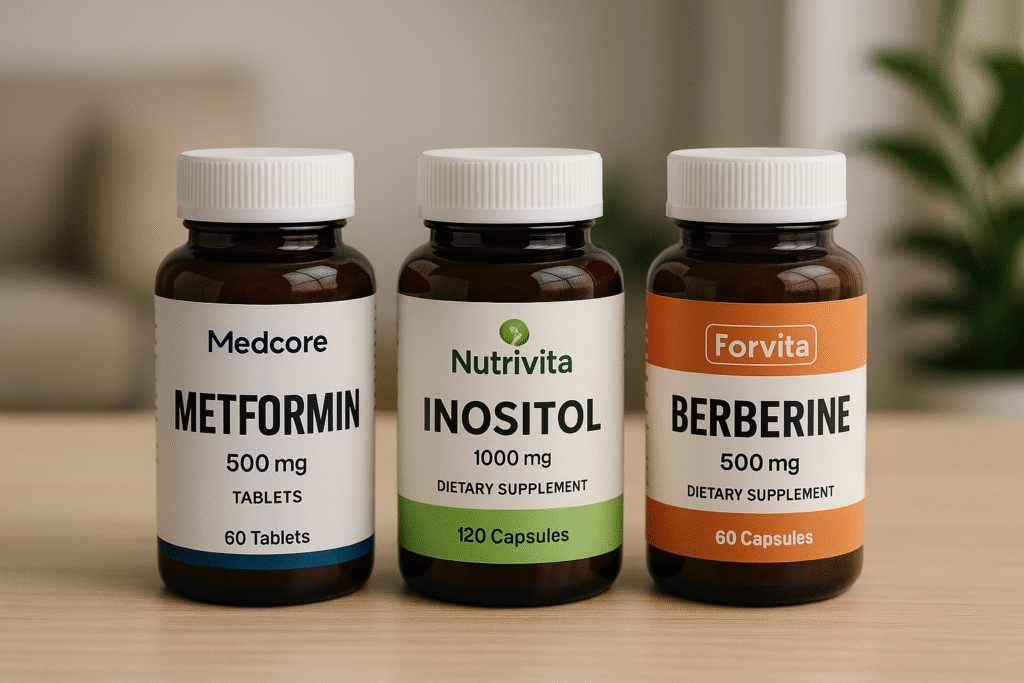
Metformin has been a staple drug used for the management of PCOS for 2 decades now. But it hasn’t come without its challenges. Its GI side effects make it difficult for some people to tolerate. In addition, many with PCOS have not been counseled properly on the need to slowly ramp up metformin from low-dose to effective dose. And of course, at the lower dosages, no effect is to be seen yet. Lack of education as to the expectations that the patient should have is an ongoing concern. Some people simply quit taking it long before even reaching the effective dose as they don’t think it’s working.
Regardless of whether metformin may or may have not worked at the effective dose, many people with PCOS look for alternatives to metformin due to its GI side effects overall. Both berberine and inositol have emerged as front-runners in addressing insulin resistance associated with PCOS.
Berberine has been shown to be slightly more effective than metformin, but myoinositol has been shown to be even more effective as an agent to improve insulin sensitivity in PCOS. So…what’s the downside?
Metformin is cheap. In the United States, it can be obtained for as little as $4 per month. Berberine will run between $35 and $50, and inositol slightly higher (as of the writing of this article). On the other hand, no prescription is required for berberine or inositol, and nothing goes on your “record” that alerts and might possible mislead lead the healthcare (or insurance) world to think that you are diabetic.
We’d like to hear from readers. What is your choice and why?
Mishra N, Verma R, Jadaun P. Study on the Effect of Berberine, Myoinositol, and Metformin in Women with Polycystic Ovary Syndrome: A Prospective Randomised Study – PMC. Cureus. 2022 Jan 31;14(1):e21781. doi: 10.7759/cureus.21781. PMID: 35251851; PMCID: PMC8890747.